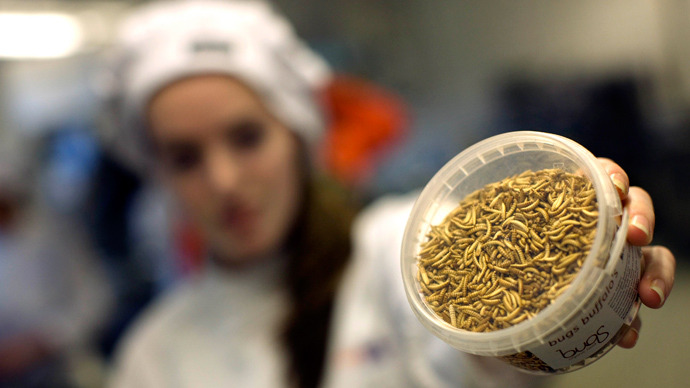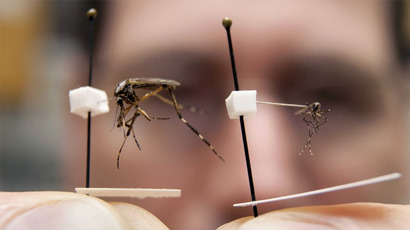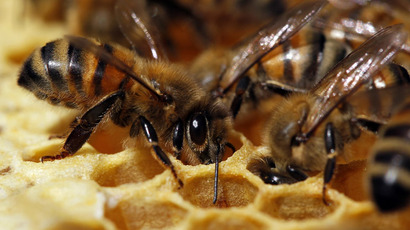Hungry? Lacking protein? Eat an insect, UN says

The UN has been working on ways to end world hunger for decades, but their newest idea does not involve economics, politics, or even food: The organization is now advising people to eat more insects.
Insect farming is "one of the many ways to address food and
feed security," the agency said in a 200-page report released
at a news conference at the UN's Rome headquarters. The report said
that insects are "extremely efficient" in converting feed
into edible meat for humans. It added that insects are
"particularly important as a food supplement for undernourished
children."
University biologists agree, claiming that certain types of
beetles, ants, crickets, and grasshoppers offer nearly as much
protein per gram as lean red meat or broiled fish. Crickets need 12
times less feed than cattle to produce the same amount of
protein.
Insects can also be rich in copper, iron, magnesium, manganese,
phosphorus, selenium and zinc. They are also a source of fiber.

The UN said that insects provide a while slew of benefits outside of nutrition. The report claims that eating insects is also better for the environment – according to the agency, most insects are likely to produce fewer environmentally harmful greenhouse gases than other livestock.
The report pitched the idea of insect farming:
"Insects are everywhere and they reproduce quickly." Currently, most edible insects are gathered in forests, and the small amount of insect farming which does take place serves niche markets such as the fish bait industry.
The UN even suggests that the restaurant industry could help in
"raising the status of insects" by adding them to their menus.
Although the idea of eating insects may seem bizarre – and even revolting – they are considered delicacies in many countries. For example, some caterpillars in southern Africa are seen as luxuries and are extremely expensive to purchase.














